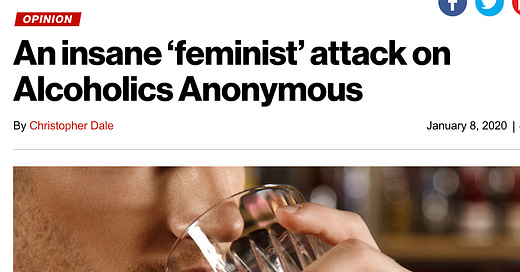This week, there was a large feature on me and Tempest in The Cut, titled “Girl Power Gets Sober” and that’s what I want to talk about. Because what I had to say turned out to be Very Very Long, I’ve split it into parts and the rest of it will hit your inbox next Friday. (A cliffhanger!)
p.1. THE BACKSTORY
For the first however many years of doing this work, getting any attention from the press was a complete pipe dream. No one fucking cared about alcohol and addiction, not in the way we do now, and talking about it was talking to the handful of people that somehow found you in a Google search or were friends with you on Facebook before you got annoying about booze. I sent endless submissions, I used every resource I had, and no one (and I mean no one except maybe Emily McCombs from XOJane) wanted to hear what I had to say. Alcohol and addiction were incredibly unsexy or untouchable topics. The end.
Part of the reason I raised venture capital in 2018 was to gain some kind of credibility,…



